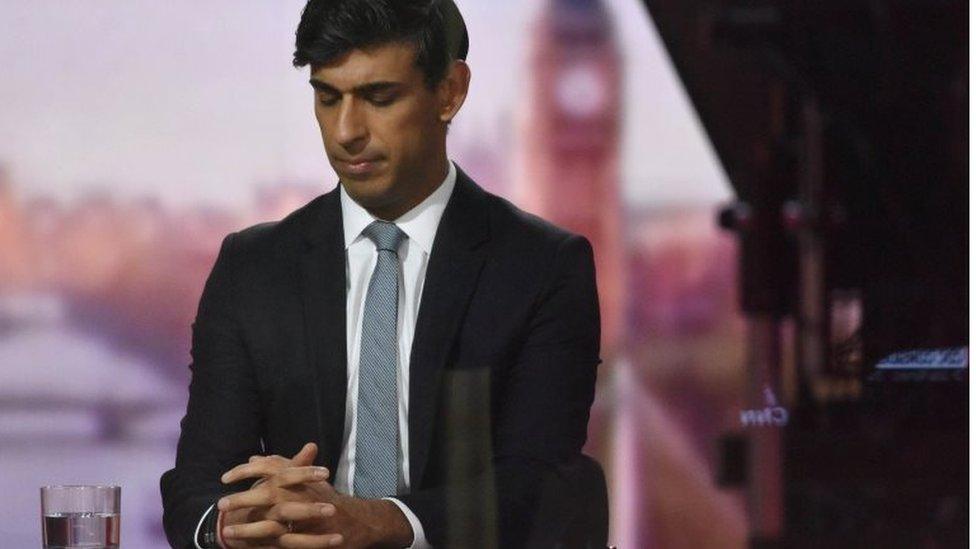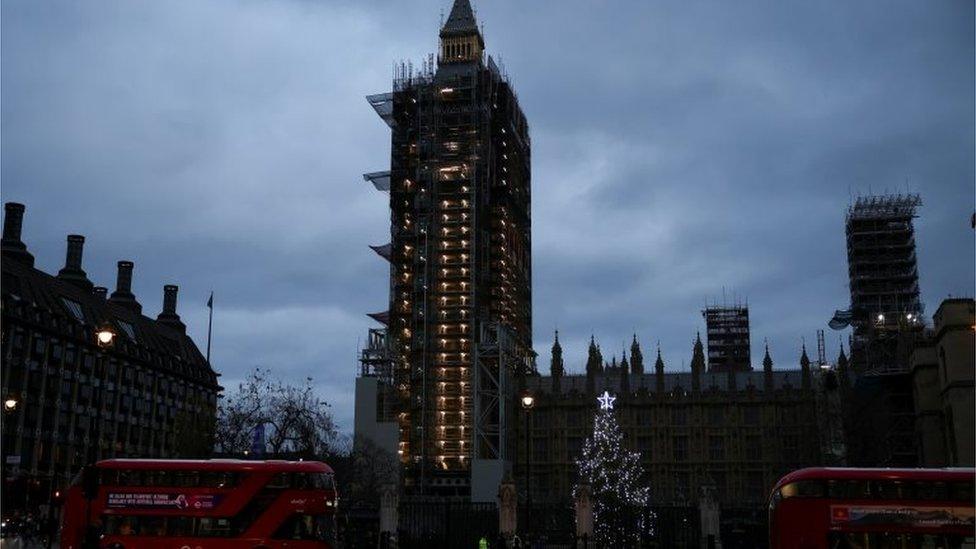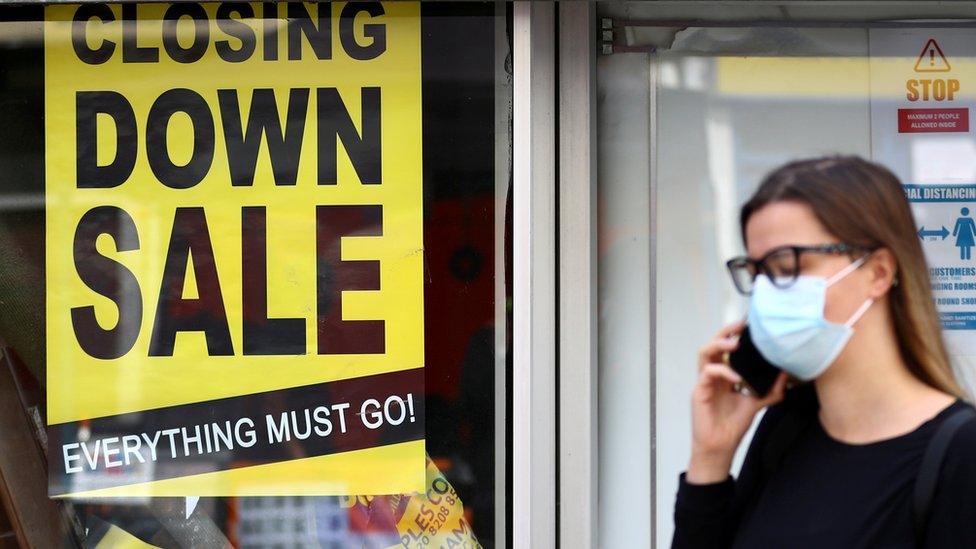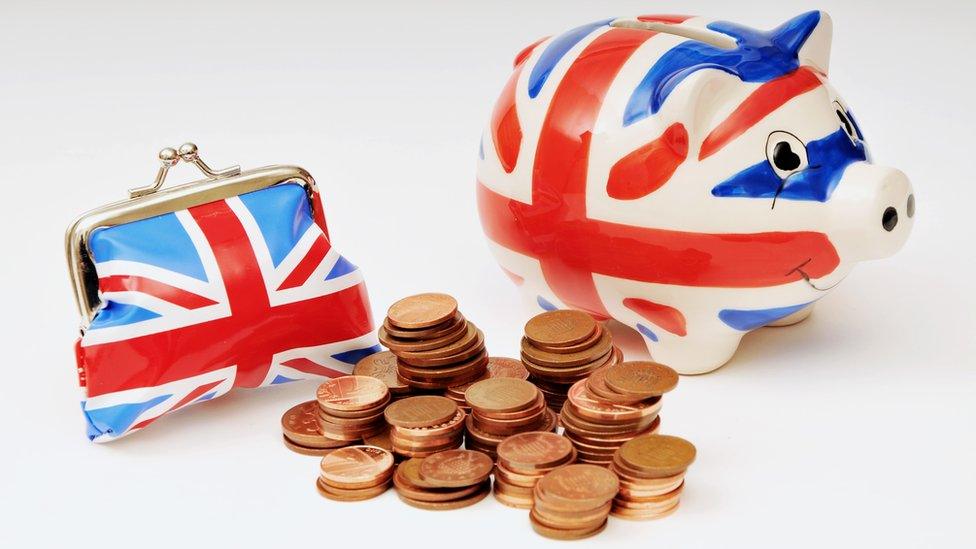The cold reality of Covid cost will be laid bare at Sunak's Spending Review
- Published

"It's going to look horrible." The simple truth about the Spending Review according to a senior MP.
The chancellor will bang the drum for his plans to keep people in jobs, or help find new ones. Rishi Sunak will take out the metaphorical megaphone to explain how he'll allocate billions of taxpayers' cash to spend on infrastructure in the coming months.
But the headlines of the Spending Review, when governments put their money where their mouths are, won't be in any rhetorical flourishes at the despatch box, nor likely in any surprise announcements kept back as goodies for the public.
What may shock, is the cold reality of the cost of the coronavirus, which will be laid bare in the tables and charts published at the same time, presenting to the country in the shape of statistics from the Office for Budget Responsibility how much damage the pandemic has really done to how we make a living.
Without poring over the spreadsheets, the "horrible" will mean a massive gap between what the government takes in tax and what is has been spending, a deficit more than ten times what it was last year.
There will be an estimate of the number of people who may end up unemployed, perhaps nearing three million before too long.
It's likely to mean a freeze on pay for much of the public sector; a cut, even if temporary to the amount of cash the UK spends on foreign aid; tight spending limits for government departments on their day-to-day spending and eye-watering levels of debt and borrowing.
One former Treasury minister, who is not prone to hyperbole (unusually for a politician you might wonder) described it as a "multigenerational debt which will have implications for the rest of our lives in terms of what the British state can afford".
We will on Wednesday, they suggest, "learn a great deal about the problem", what months of emergency spending has done to the economy. But before we go on, don't hold your breath to learn much about any solutions.

Rishi Sunak will set out the state of the country's finances in a statement to Parliament
The chancellor and prime minister have decided politically that while budgets will be tight (and let's see the black and white to assess this for real) there can't be a return to the kind of squeeze of the Cameron and Osborne era.
No one in government would pretend in private there is any way to avoid tax rises at some point. But Mr Sunak is not going to announce any of that on Wednesday - any big ways of raising money to fill the hole won't come until the Budget next year at the earliest, and perhaps not until after that.
But Wednesday's review will sketch out the very, very serious challenge for the country's finances that is on the way.
Most importantly of course that will be reflected in the number of people who might lose their jobs with all the distress that entails, all the business that could be lost, and the impact on people's pay packets. But it also sets the backdrop for the decisions that our politicians have to make, and will be confronted with for many, many years to come.
It's notable that while there have been some skirmishes around the edges in the last nine months, there has been very little tension over the government and the Bank of England's central actions to write enormous cheques, and keep the signatures coming as the pandemic has progressed.
And it's far from over. But as time goes on the exit from the emergency leaves the government with extremely difficult political decisions.

Pubs have been forced to close due to coronavirus restrictions
There is no appetite to break any of the prime minister's expensive manifesto promises.
New Tory MPs, particularly in new Tory seats are chomping at the bit for evidence to show to their constituents they made the right decision.
One former minister said, "our voters want something tangible they can see at the end of their street," and they want it fast.
But the chancellor also, according to his allies, says "we have to be the party of looking after people's money - he says, if we lose that, why don't you just vote Labour?"
The argument works the other way too, to an extent. If the Tories are racking up levels of public spending that are previously unimaginable, the traditional gap in economic vision doesn't leave Labour with that much space.
How and when will either of the main parties try to confront what has really gone on as the cost of trying to deal with the pandemic has gone up and up and up?
Some ministers worry even many MPs haven't yet understood the real consequences for how we make a living - the damage the decisions made to protect the country during the emergency of the pandemic have had on the economy.
But Wednesday will be the first time, eight months in, when we will be confronted with the size of the likely bill. The argument about who and how to pay will dominate for many years to come.
- Published24 November 2020

- Published25 November 2020

